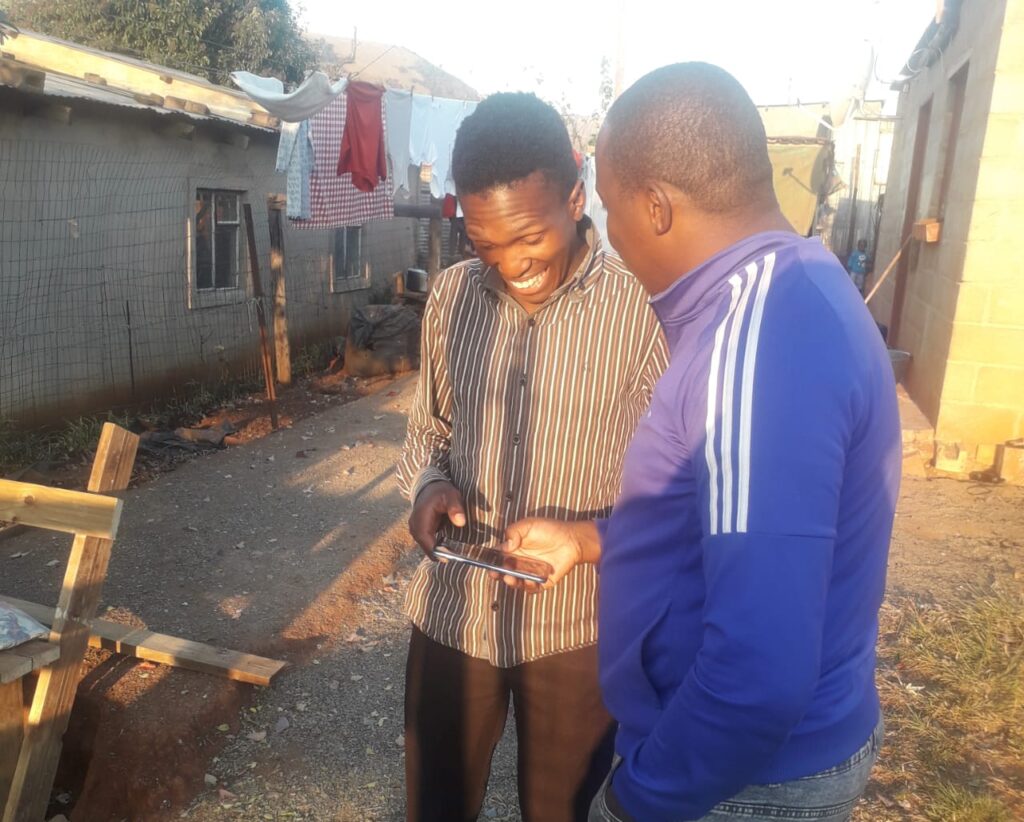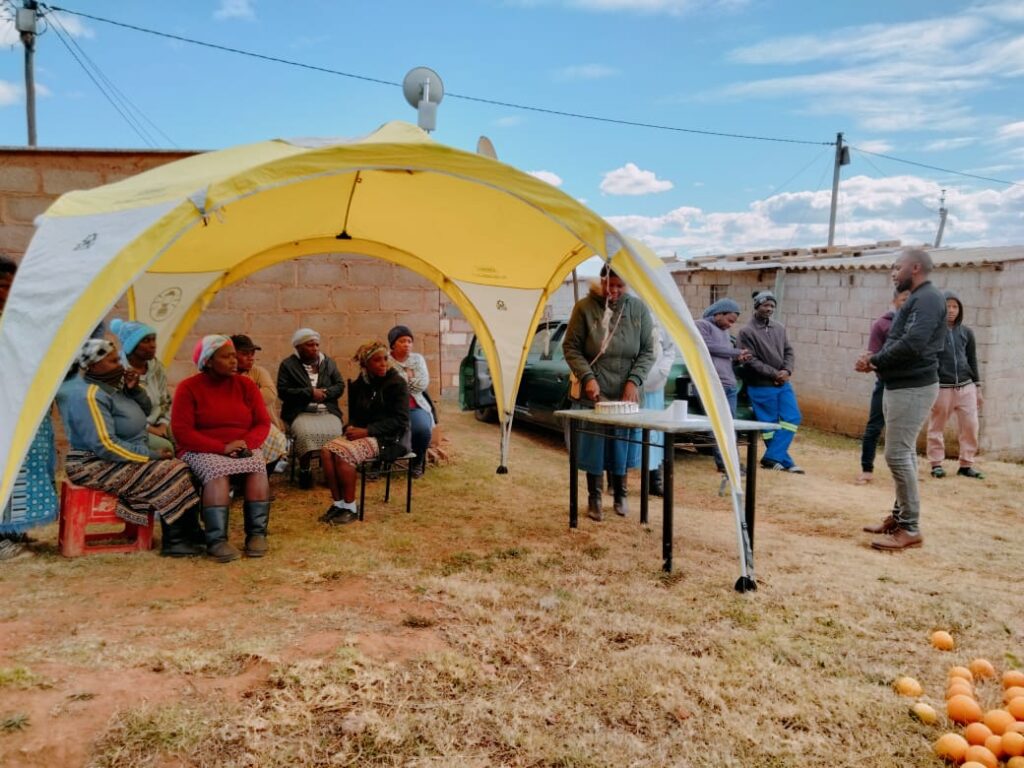How residential WiFi hotspots strengthen the Mpophomeni community network
Isizwe shares their learnings about having WiFI hotspots in homes after one year of working on the Mpophomeni community network project.


Over the past year, Isizwe has been hard at work implementing the community network in Mpophomeni and monitoring the progress to see how it becomes an established part of the community infrastructure. One major learning that has come out of the first year of running this network of public WiFi hotspots is that having hotspots and resellers in residential homes boosts the amount the network is used. As this is the first time that Isizwe has set up WiFI hotspots at a combination of residential and commercial locations, we asked the team working on the Mpophomeni project to answer some questions about the progress, their learnings, and how these learnings affect their other community network projects.
How are things going in Mpophomeni with the community network?
The Mpophomeni project continues to grow steadily, with consistent network and sales performance over the recent months. The WiFi network is enjoyed by the community members, most of whom connect daily. Across the 21 hotspots, there are consistently 300 users each month, with the network’s monthly revenue steadily growing towards R3,000.00 (around €200.00). In Mpophomeni, we have a very active host community who engage with us almost daily regarding WiFi performance and stability. Their participation in and dedication to troubleshooting challenges as they arise are factors which continuously contribute to the network’s growing success.
When you were planning the network, why did you decide to have a mix of commercial and residential resellers?
Historically, Project Isizwe focussed on provisioning WiFi at public hotspots – connecting people at places like schools, libraries, clinics and community centres where they went each day. Two things changed in the months leading up to deploying in Mpophomeni. Firstly, Project Isizwe embarked on a clearer and more direct pathway towards sustainability. Commercial sites like tuck shops, spazas and supermarkets are very attractive in terms of enabling sustainability. These sites have hosts who are already selling goods in their community on a daily basis, they often have some entrepreneurial and sales skills, are familiar with some mobile technology sales mechanisms, have access to cash flow to provision a float for WiFi sales, and their sites more often than not have dedicated power. These commercial sites provide good opportunities for enabling sustainability, hence this decision. The second change was that increasingly, Project Isizwe users were moving away from accessing WiFi at public sites and were more interested in having access at home. As the internet increases in prevalence and affordability, the desire and demand to access it in the comfort of their own homes has grown amongst our users. The Mpophomeni project happened at such a good time with regards to these two changes. Furthermore, our existing relationship with community members at the One Life Church – the first hotspot that we deployed in Mpophomeni – gave us insight and connection into how this network could achieve success. Key community stakeholders were able to guide and pinpoint specific commercial and residential resellers who would drive sales at their sites and ensure the project’s success. Deploying across a mix of commercial and residential sites and hosts has enabled the project to maximise on the positive returns that both have to offer.

Does having residential resellers impact the success and progress of this project?
Absolutely. When people are able to enjoy seamless, uncapped internet in the comfort of their own homes they become critical ambassadors for this service and partners in our success. Our residential resellers are helping to drive the project’s success in a number of ways:
- They keep the equipment powered and switched on: a key requirement to provide community WiFi.
- They give us regular – daily in most cases – feedback on the stability of the connection and user experience of the service: this engagement and feedback helps us problem solve, troubleshoot and improve the service delivery to our customers.
- They sell data packs to the people in their homes, their neighbours and customers who come to their home to use the WiFi: critical for success is ongoing sales and without the resellers topping up and selling WiFi, the sales performance on this network would not be achieving the current growth.
- They promote the service and fill an important on-the-ground marketing role: telling people about the uncapped WiFi service provision on offer is a critical marketing channel and success factor for the project; a targeted, word-of-mouth recommendation from someone you know is far more likely to results in sales and conversions than our remote and more traditional approaches.
- They have high standards and expectations which drive up our delivery: our Mpophomeni hosts and resellers are among our most engaging and demanding; they have high expectations about the service we promise and they hold us to this, which continues to drive up our own standards of delivery to our customers.
- They are creating demand for the WiFi in their community: we receive regular requests for new sites in Mpophomeni; the residential resellers have been key in promoting the service with a particular focus on how having WiFi in one’s home adds value to their lives.
Has the success of the Mpophomeni project influenced some of your other projects?
Yes. The quick and sustained impact and learning that was achieved in the early months in Mpophomeni from deploying WiFi into homes has very much influenced us taking the same and similar approaches in subsequent projects. Mpophomeni allowed us to learn that the demand for WiFi in people’s homes is much greater than at public hotspots. This learning has been channeled into our Lamontville project where more than 90% of the sites have been installed at residences. In much the same way that Mpophomeni saw early success from this approach, so too is Lamontville thriving from the provision of WiFi into people’s homes. Furthermore, in areas where we are moving sites – decommissioning ones that haven’t proved successful – we are selecting replacement sites on the same basis, giving priority to users who want to connect from the comfort of their own homes.